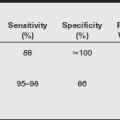
In the dynamic landscape of healthcare, research is not just an academic endeavor but a fundamental pillar that supports the entire network of medical practice and patient care. At its core, healthcare research is dedicated to unraveling the complexities of disease, exploring new therapeutic avenues, and ultimately paving the way for innovations that enhance patient outcomes. This pursuit of knowledge is critical, as it informs evidence-based practices, fuels advancements in treatment and technology, aids in understanding the intricacies of drug effects and safety, and carves the path for personalized medicine. Each of these elements contributes to a healthcare system that is both responsive and responsible, ensuring that patient care is grounded in the best available evidence.
1. Evidence-Based Practice
The concept of evidence-based practice stands at the forefront of modern healthcare, highlighting the importance of research in clinical decision-making. This approach integrates the clinician’s expertise with the best available clinical evidence from systematic research. The goal is to ensure that patients receive care that is scientifically validated, optimizing outcomes and minimizing harm. Through rigorous research methodologies, healthcare professionals are equipped with data that guide their treatment plans, ensuring interventions are not just based on tradition or intuition but on solid evidence of effectiveness and safety. This reliance on research empowers practitioners to offer care that truly makes a difference in patients’ lives.
2. Understanding Drug Effects and Safety
A critical component of healthcare research is the careful study of medications, including their efficacy, potential side effects, and overall safety. A prime example is the investigation into the effects of peptide hormones like CJC 1295. Research into CJC 1295 side effects is invaluable, as it provides insights into how such treatments can be optimally used, their suitability for various patient populations, and the precautions necessary to mitigate risks. This level of scrutiny ensures that when drugs are prescribed, healthcare providers and patients are well-informed about the benefits and risks, leading to better treatment outcomes and enhanced patient safety.
3. Advancements in Treatment and Technology
Healthcare research is the driving force behind the continuous evolution of medical treatments and technologies. It’s through dedicated studies and trials that groundbreaking therapies emerge, offering hope where there was previously little. From the development of life-saving vaccines to the creation of minimally invasive surgical procedures, research has transformed the healthcare landscape, making treatments more efficient, less painful, and more accessible. Beyond treatments, technological innovations such as telemedicine, wearable health monitors, and AI-driven diagnostic tools are reshaping how care is delivered, making it more personalized and convenient for patients. These advancements highlight the transformative power of research in pushing the boundaries of what is possible in healthcare.
4. Personalized Medicine
The rise of personalized medicine represents a pivotal change in healthcare delivery, shifting away from the traditional one-size-fits-all treatment model. Central to this shift is research that delves into genetic variations, environmental factors, and individual lifestyles to tailor treatments to the unique characteristics of each patient. This personalized approach not only increases the efficacy of treatments but also minimizes the risk of adverse reactions, ensuring that healthcare interventions are as effective and safe as possible for each individual. Research in genomics and molecular biology is crucial in this context, offering insights that allow for the customization of therapies to fit the genetic makeup of patients, marking the beginning of a new era in healthcare that is genuinely customized.
5. Public Health and Epidemiology
Research in public health and epidemiology serves as a way of revealing the patterns, causes, and effects of health and disease conditions within populations. It’s this beacon that aids in formulating public health policies, implementing disease prevention strategies, and responding to health emergencies. The insights garnered from epidemiological studies inform interventions that aim not only to treat but, more importantly, to prevent illness, enhancing the health of communities worldwide. This proactive approach to healthcare, powered by research, paves the way for a future where prevention is prioritized as much as cure, ensuring a healthier tomorrow for all.
6. Cost-Effectiveness in Healthcare
In a world of limited resources and unlimited needs, the cost-effectiveness of healthcare interventions becomes important. Research in this domain seeks to identify the most efficient ways to allocate resources to maximize health outcomes. By evaluating the economic impacts of treatment options, preventive measures, and healthcare policies, research ensures that the finite resources available are used in ways that provide the greatest benefit to the largest number of people. This aspect of healthcare research is vital in making informed decisions that balance quality care with economic sustainability, ensuring the viability of healthcare systems in the long term.
7. Patient Education and Empowerment
At the core of effective healthcare lies the empowered patient—knowledgeable, engaged, and proactive in their care. Research contributes significantly to patient education, providing evidence-based information on disease prevention, management, and health promotion. This empowerment transforms patients from passive recipients of care to active participants in their health journey. Armed with knowledge, patients can make informed decisions about their treatments, engage more meaningfully with healthcare providers, and adopt lifestyles that promote overall well-being. In this way, research not only enhances the individual’s health but also contributes to the collective health literacy of society.
Conclusion
Bringing together the various aspects of healthcare research, from exploring new treatments and technologies to focusing on public health, cost-effectiveness, patient empowerment, and ethical standards, it becomes clear that research is the keystone of effective healthcare. It is the driving force behind progress, ensuring that healthcare practices are not only rooted in the best available evidence but also conducted in ways that are economically viable, ethically sound, and patient-centered. Looking ahead, the importance of research in healthcare continues to be paramount, offering the potential for improved health outcomes, more efficient care delivery, and a healthcare system that is fair, accessible, and attuned to the needs of every individual. Through the perspective of research, we are not only envisioning a healthier world but actively shaping it, steering healthcare towards a period of remarkable growth and significance.



